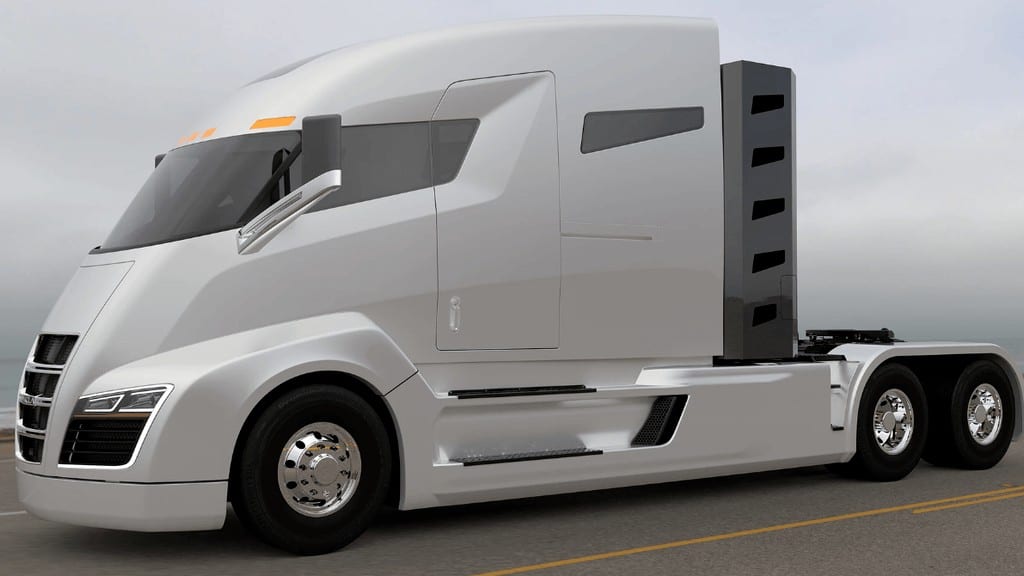Bosch revealed last month that it would invest $200 million to modernize a fuel cell factory in South Carolina that produces heavy-duty trucks. Meanwhile, Ford is already launching a pilot test for its brand-new F550 Fuel Cell Prototype Chassis Work Truck.
CleanTechnica‘s reporter Jo Borrás wrote, “Bosch has been in the hydrogen fuel cell business since at least 2019 when the company partnered with Powercell to develop fuel cell stacks for vehicles like the Nikola electric semi.” He added, “Bosch later stepped back its partnership with Nikola in the wake of SEC fraud allegations leveled against the company’s then-CEO, Trevor Milton.”
Unfortunately, numerous plans were destroyed by the fraud incident. For instance, the Anheuser-Busch division of AB InBev was prepared to order 800 Nikola fuel cell vehicles in 2018.
Additionally, General Motors abandoned its plan to use Nikola in launching its fuel cell truck business in 2020 after the fraud claims came to light.
For the fuel cell trucks’ baby steps, Volvo is placing its initial bet on fuel cells for construction vehicles and other heavy-duty applications. Meanwhile, a hybrid battery-fuel cell vehicle from the start-up Tevva is also in the pipeline, along with other businesses like BMW, Toyota, and Hyundai that are considering fuel cell truck developments.
The Ford F550 Fuel Cell Prototype Work Truck will be tested in Ferguson Enterprises’ North American fleet for six months, as announced by the company earlier this week.
“This pilot program aims to evaluate how fuel cell technology will operate within the Ferguson fleet while providing real-world usage data to Ford. Ferguson will provide Ford with vehicle data and feedback about the technology to help Ford better define the engineering requirements for commercial vehicle duty cycles,” Ferguson stated.
It is worth noting that the pilot project’s more specific goal is to investigate if fuel cell technology may help heavy-duty trucks achieve zero emissions. Furthermore, the time required to recharge a battery electric vehicle can be problematic in the transportation and logistics industry. When speed matters, fuel cell electric vehicles are appealing since they can be refueled at roughly the same time as a gas or diesel vehicle.
“This data will be used to address ongoing industry challenges within the medium-duty and heavy-duty segments, like battery range and payload capacity, that have prevented faster conversion to environmentally friendlier options,” Ferguson explains.
Remarkably, Ferguson is initiating a pilot program with 30 battery-powered trucks, including trucks from classes 6, 7, and 8, as it remains committed to achieving zero-emission targets.
If the US Department of Energy’s Super Truck 3 funding program succeeds, Ford’s F550 Fuel Cell Prototype Work Truck may represent the first wave of fuel cell trucks. In retrospect, four fuel cell projects and one battery project received a total of $127 million award from Super Truck 3 last year in an effort to lower vehicle emissions from medium- and heavy-duty trucks. Other winners included Ford, Daimler Trucks North America, General Motors, PACCAR Inc., and Volvo Group North America.
Fleet owners are searching for new technologies that allow them to reduce emissions from their carbon balance sheet. That said, the debate between batteries and fuel cells for zero-emission mobility is still a topic of discussion. Remarkably, customers are now mindful of the potential impact their purchasing power could have on the market for zero-emission trucks.
“As we reviewed emissions from our fleet, we realized our scale in the industry provided us with an opportunity to invest in and test new technologies. Participation in Ford’s pilot program will provide further learnings as we work to convert Ferguson’s fleet more efficiently,” explained the firm’s VP for Environmental, Social and Governance, Denise Vaughn.
“Ultimately Ferguson’s investment in new technologies will set the industry standard for private fleet conversion, driving an expansion of the country’s refueling infrastructure,” she added.
Kevin Murphy, the CEO of Ferguson, added his perspective on the subject of diverse technology by saying, “We are pleased to announce this innovative collaboration with Ford to help improve alternative fuel options in their medium-duty fleet, in line with our overall corporate sustainability strategy to reduce our Scope 1 and 2 emissions,” he said.
Meanwhile, Ford appears to be prepared to join the fuel cell truck wagon.
“This collaboration with Ferguson is a strong example of where our Ford Pro business and the potential of fuel cell propulsion systems might address the application gaps that battery electric vehicles just can’t fulfill,” said Jim Buczkowski, the executive director of Ford Research and Advanced Engineering.
“The potential of hydrogen, the most plentiful element on the planet, coupled with fuel cell technology has tremendous potential to power larger, heavier commercial vehicles while still delivering zero tailpipe emissions,” he concluded.
Nonetheless, it must be noted that much work remains to be done for the US market, even if fuel cell vehicles are gaining popularity in several regions of the world.

